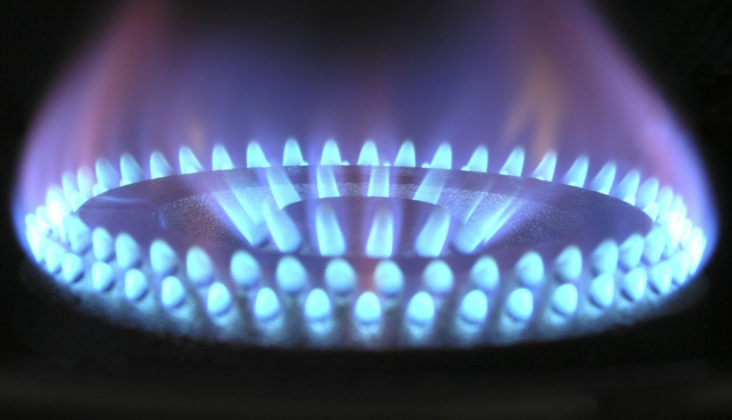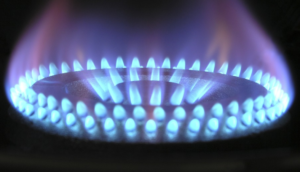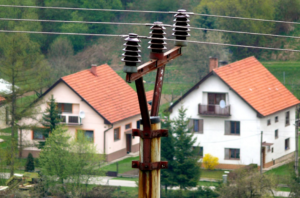Is It Better To Be On a Fixed Energy Tariff?
Fixed-price energy tariffs are the most cost-effective option to lock in your energy costs for a year or two. To ensure you’re not at the mercy of the market, you can utilize a fixed-rate energy plan if the price per unit appears to rise more than your capacity.
Fixed-rate agreements often run for 12 to 24 months, but they do not guarantee that your monthly bill will be the same. One thing can improve the price per unit without being able to fix the number of units you consume. The same as before, the more energy you consume in a month, the more you’ll pay.
The regular variable-rate tariff is the other primary type of energy arrangement. These account for market fluctuations, so a spike in global energy prices may result in more outstanding bills than anticipated; however, if prices decrease, you’ll pay less.
Want to know the difference between fixed energy tariffs and variable?
Consider your current financial condition and how often you’ll have the chance to shop around for better energy bargains.
If a fixed plan isn’t the lowest option, consider whether you’d rather pay a little extra to lock in your energy bills.
You may always compare energy plans to discover which ones save you money over your current ones. Then look to see which of those plans are fixed rates. Your provider will switch you to a standard variable plan once your revised plan expires. It might be a costly tariff though
Your supplier is sure to offer you another fixed contract before then, but now is an excellent opportunity to weigh your options and decide whether you’d be better off switching.
Should I Do 2023 fixed or variable energy?
Selecting a fixed or variable rate energy tariff is similar to choosing a variable or fixed rate mortgage. Both might be necessary
market conditions determining the cost of fixed pricing tariffs. Using the fixed deals might become less appealing because providers must charge more if wholesale prices are high too.
Although a variable tariff may appear the cheapest initially, it may not be in the long run. If a fixed tariff isn’t the lowest alternative, consider whether you’d be willing to pay a little more to ensure that your energy bills would stay the same.
There are no right or incorrect solutions when deciding between a fixed and variable energy plan—the optimal energy tariff for your home is determined by your expectations for future energy prices and risk tolerance.
What are the advantages of energy tariffs with set prices?
It is cheaper than the variable-rate tariffs:
Fixed-rate tariffs are frequently less expensive than variable-rate tariffs, though you may pay more for the security of signing a more extended contract at a fixed rate.
It helps you Defend yourself from price increases anytime:
When oil and gas costs are low, they can be very appealing, but they might swing wildly when the price is high.
Manage your monthly spending:
You can control your bills because you know how much each unit will cost. If you have a costly month, you will know you need to reduce your usage.
Does the price cap also apply to fixed tariffs?
More than 20 energy companies have gone out of business due to escalating expenses. Implies your bills have increased and will most certainly increase.
If you were previously on a fixed tariff and your provider did not go out of business, you should keep paying the same amount, and you will have to pay more when your fixed tariff ends.
If you have a standard (variable) tariff, your bill will increase if the price cap rises. You can be on a standard tariff if you’ve never switched energy tariffs or your fixed-term energy plan expires.
Will my energy bill go up if I’m on a fixed-term contract?
The offer is still valid. Only energy companies with standard variable tariffs get the cap, and it implemented the energy cap to prevent these consumers from paying exorbitant prices due to their devotion.
If you have a fixed rate contract, you will pay that rate until the end of the term unless your provider fails and you are reassigned to a new provider.
Households are in an odd situation because switching to a new fixed arrangement will result in higher pricing. If your contract expires soon, you’ll be better off switching to your provider’s standard tariff rather than a new fixed rate.
Can I be charged more than the energy price cap?
The recent energy price cap has been raised by 54% based on research. There is no cheap option even though the energy sector is facing some crisis. As a result, for most people, the best option is to do nothing and either continue on a capped tariff or switch to one when their existing agreement expires. With so many of us now on or switching to a tariff with a price cap,
You can only be charged the price cap when switching from a failing supplier, regardless of the rate offered. You’re relocating. When you notify your current supplier that you are moving out, your current tariff usually ends.
Does the price cap apply to fixed tariffs?
Pricing cap restrictions differ from other price and profit limits used to regulate utility suppliers, such as rate of return and revenue cap rules.
The energy price cap restricts how much suppliers can charge you per gas unit or electricity used. The energy regulator, Ofgem, sets a price cap every six months that swings.
In October, they raised the energy price cap. This happened because global gas and electricity costs increased, making it more expensive for energy providers to deliver gas and electricity to you.
The energy price cap will increase by 54% on April 1, 2022, as wholesale gas and power costs continue to grow. If consuming the same amount of energy on a regular (variable) tariff, an ordinary household spending around £25 per week will pay around £37.50 from April. Your total bill does not limit price limitations.
What happens if you use more energy than your fixed tariff?
Fixed-price gas and electricity tariffs ensure that energy prices will not increase for a set period. The most typical 12-month fixed-rate taxes are available. You can locate two or even three-year fixed energy deals if you browse around, giving you even more peace of mind.
It’s crucial to understand that choosing a fixed-price energy plan does not guarantee that your monthly energy cost will be the same. Because your unit prices for energy are fixed, your expenditures are likely to fluctuate accordingly. And this might happen when you are on a revised plan or use more power than the other month. Throughout the contract duration, the amount you pay for the unit of energy used will be fixed.
Fixed-price energy contracts provide both price stability and competitive market rates. They frequently appeal to individuals seeking a medium- or short-term solution to minimizing energy price increases and providing excellent value.
This mostly happens when you seek a longer-term agreement. This can also include a fee for an early exit. But if you decide to change the tariff plan just before you exhaust your contract, be rest assured to make the payment.
If energy costs rise, you could save a lot of money, but if they don’t, you could pay too much and be charged an early departure fee if you wish to transfer.
When your fixed plan expires, you should figure out which plan your supplier will switch you to. It could be your supplier’s ‘Standard’ plan, while others may allow you to re-fix your costs.
The most expensive energy plans in the market are Standard energy, though cheaper options are also available.
Conclusion
Being on a fixed energy tariff might be good for you. But you can do the best you feel can be okay for you. Do you want to contribute to what you have read so far? Then the comment box was made for this. Do drop your comments or contributions in the comment box. You can as well share and like the article too. Remember to use the subscribe button too.






GIPHY App Key not set. Please check settings
One Comment